There are stories that stay with me.
There is a man in Japan who took up scuba diving. And a woman who makes special lunches for her daughter every weekend. Unremarkable stories. Except the man dives every weekend to find the body of his wife who died in the 2011 tsunami. And the woman places her lunch boxes on the ocean for her daughter whose body has never been found. Over and over again. Acts without outcomes. An endless cycle of impotent doing.
These small stories are not just ones of tragedy. There is an emptiness underneath these actions. Like some kind of existential busy work. If either of these people found their loved ones, would they heal then? Or would their broken bodies simply fall apart?
It’s Jae-yi who shows us what she’s made of in these two episodes. Poor Jae-yi who has run her mother’s butcher and searched for her for years in the hope that if she holds a line her mother will come back and everything will be as it was before. Jae-yi who has long seen Lee Dong-shik as the man he really is underneath the crazed shell he presents to the world.
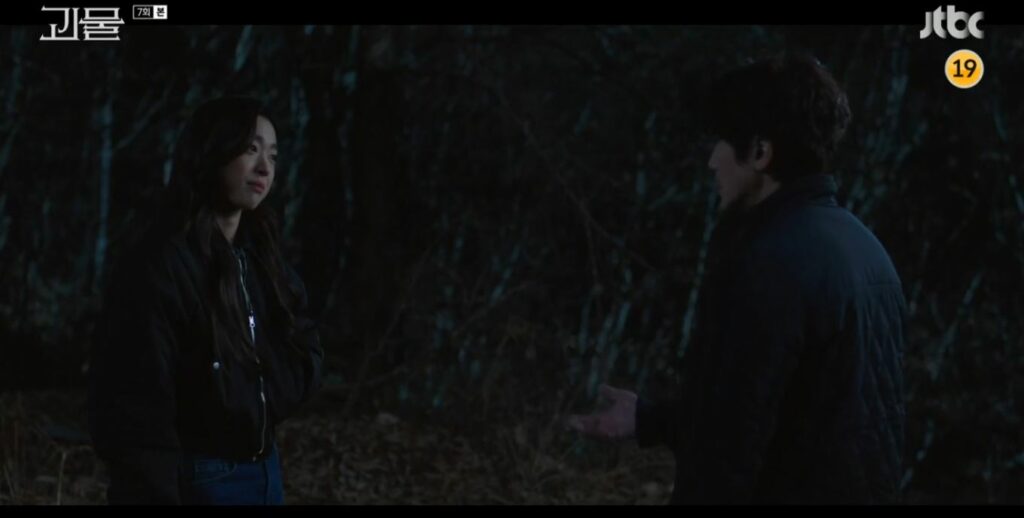
“You’re just insane, that’s all. The sorrow you held all to yourself brimmed over at some point, so you just began to go around doing crazy stuff.”
Jae-yi
Jae-yi who understands Dong-shik because she is the same. Insane because of grief that has nowhere to go.
This week’s episodes start with an intensely layered flashback to 2017 when the crazier of our protagonists was in the Regional Investigation Unit. To be honest, I had forgotten about the death of Dong-shik’s partner: the one he was suspected of killing and that led to his demotion. Seeing how the events of 2017 unfolded gives us significant insight into Dong-shik’s character and how he has responded to the death of Min-jung.
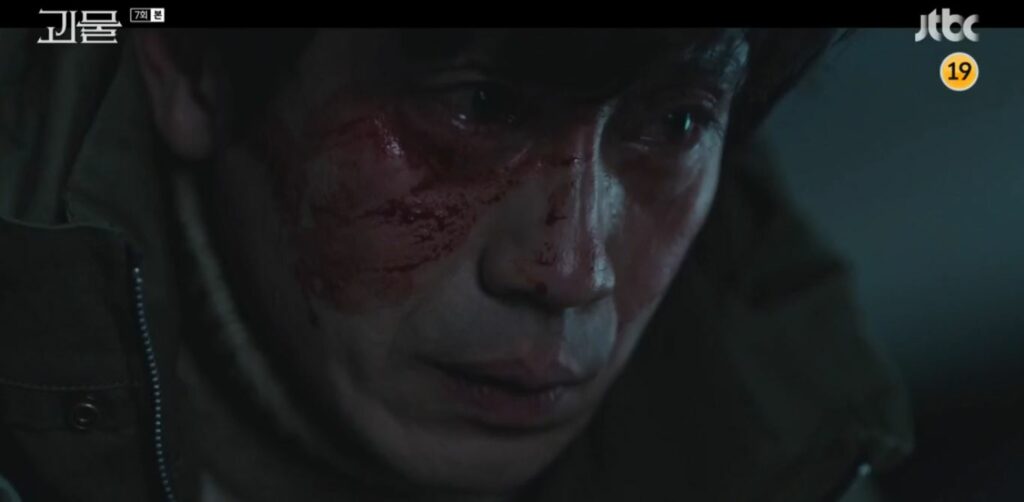
The flashback raises a dozen questions about policing, conflicts of interest, responsibility, building a case, and acting outside of the law – whether for justice or retribution. Should you be allowed to investigate a case where you knew the victim? How do you build sufficient evidence against a killer, especially when a failed case could lead to double jeopardy? If you get it wrong, you don’t get another attempt. And as the show has repeatedly stressed, convictions for murder without a body are almost impossible.
Episode 7 plays out the events of the night that Min-jung got murdered. And by the time Dong-shik drops by her house and finds her fingertips spread out in the basement but her body nowhere to be found? Well, by that point, we understand completely why he chose to do what he did.
A murder with no body. No concrete smoking gun. And so many other victims whose families shift restlessly and purposely through life like that man and woman by the sea in Japan. So many Jae-yi’s running to morgues and motels and to the sea at Busan over and over again to fill the time of their endless, crippling helpless waiting. So many old demented men and women lost in reed fields and hospices, their lives broken by the senseless loss.
Is it any surprise then that he took those fingertips and put them on display for all to see and did all he could to reflame an investigation that was in ashes? Dong-shik has known since that night that Kang Jin-mook is the murderer. He’s just been trying to flush him out, both to find the bodies and ensure the families get answers.
Not to imply that Dong-shik is innocent. He’s not. He not only committed a crime by moving Min-jung’s fingertips, he also found the phone of our murdered illegal immigrant, Lee Geum-hwa, and planted it to link her case to this one. He kept Min-jung’s phone and spends the first half of this episode baiting the police and Jin-mook with text messages from it.
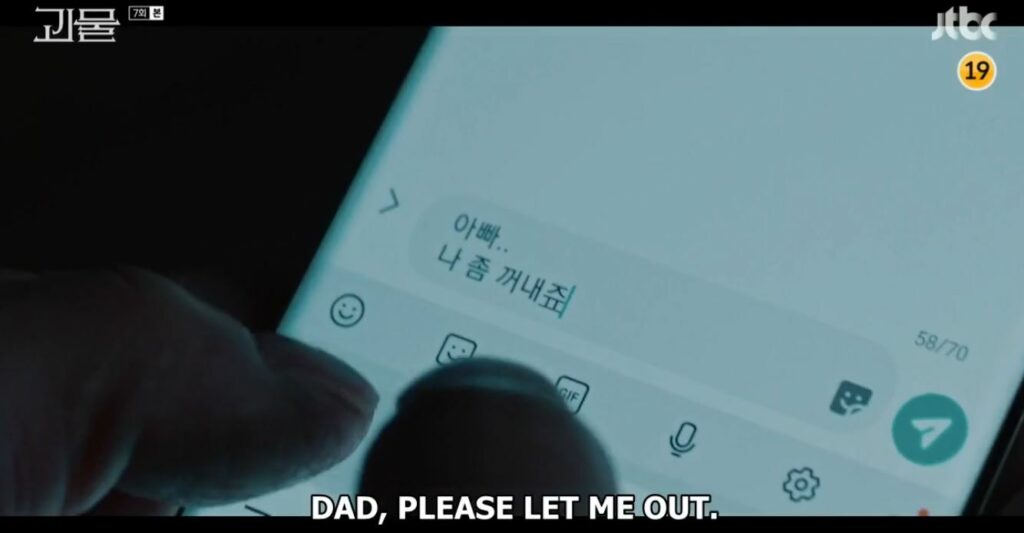
Our 2017 flashback also shows us what he’s capable of in terms of getting retribution. He may not have killed his partner back then. But he did murder the suspect they were chasing. So Dong-shik’s motives become very clear. This is not about justice. This is about closure but also about retribution, restitution, redistribution. About putting everyone back where they belong, if not physically then at least emotionally.
Still, despite Shin Ha-kyun giving us another masterclass in acting, this is absolutely Yae-ji’s episode as she quietly picks up Dong-shik’s work and begins to lead the police on a merry chase around Munju City’s crime scenes. The links between her mother’s disappearance, Min-jung’s death, and the mysterious text messages Kang Jin-mook is receiving become too glaring. Jin-mook names her as a suspect and Han Joo-won appears to search her shop again.
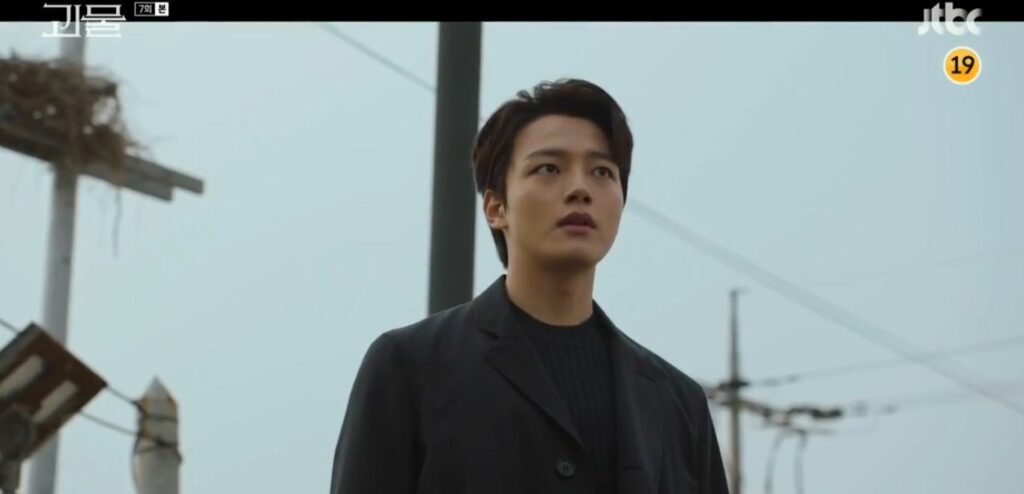
Her sanguine and controlled response to this intrusion, in comparison to her previous impotent fury, does not go unnoticed by Joo-won. He’s decided to approach the case methodically this episode; refusing to come back to Dong-shik until he has clear and incontrovertible proof. He finds it in the CCTV footage hidden when Chief Nam was allegedly trying to cover up the return of the case files by Dong-shik. He was instead trying to hide footage of the supermarket where Dong-shik could no doubt have been clearly seen laying out the fingertips.
Which means he makes it to Dong-shik’s door just as Yae-ji is lured to the river in search of her mother’s body and Jin-mook unearths his daughter from her horrific tomb in one of his kimchi pots. And what could be more classically rural Korean than kimchi buried in somebody’s back garden?
What lies beneath this small town?
Bodies.
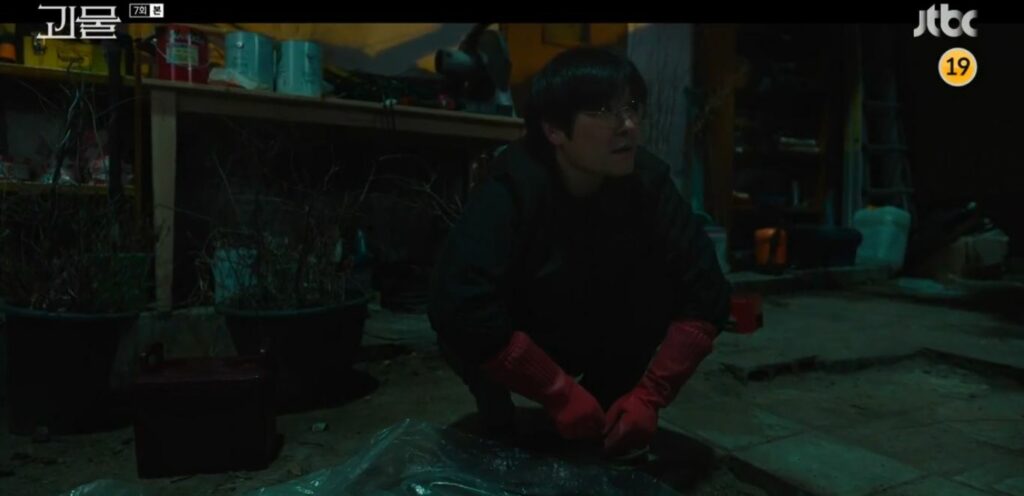



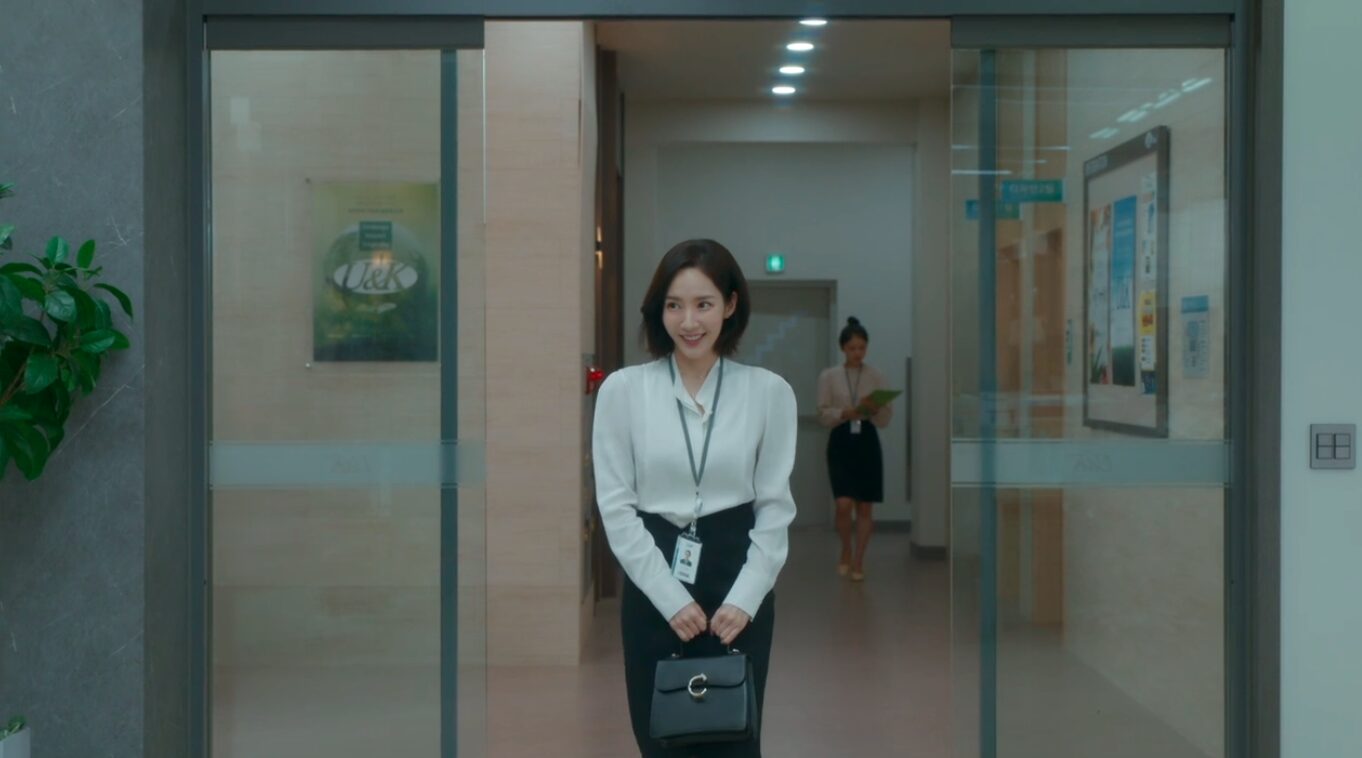
SHK is surely giving us a masterclass in acting every week.
This is the 2nd drama I watch for him and he’s way better than the one I saw before although he was amazing in that one
Loved your recap. This was my favorite episode.
Love your recap, LT. This episode was a turning point for me.
No inciteful comment for this one, just: We got him, boys! 🎉
Just started watching this show a few days ago. Took awhile for me to get into it, but I’m SO glad I waited it out. These last two episodes have been masterpieces!! Thank you for taking the time to write these episode recaps.